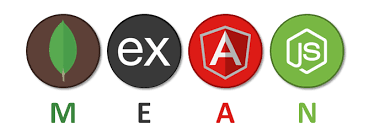A MEAN stack training course typically covers the core technologies in the MEAN stack—MongoDB, Express.js, Angular, and Node.js. The syllabus is designed to teach students how to build full-stack web applications using these technologies. Here is a detailed breakdown of a typical MEAN stack training course syllabus and its duration:
Course Duration
The duration of a MEAN stack training course can vary, but it is generally structured to last between 8 to 12 weeks if taken part-time. For a full-time course, it can be condensed into a 4 to 6-week intensive program.
Syllabus Outline
1. Introduction to MEAN Stack
- Overview of full-stack development
- Introduction to MEAN stack architecture
- Setup development environment
2. MongoDB
- Introduction to NoSQL databases
- MongoDB architecture and features
- CRUD operations in MongoDB
- Data modeling
- Aggregation framework
- Indexing and performance optimization
3. Express.js
- Introduction to Express.js
- Setting up an Express.js server
- Middleware in Express.js
- Building RESTful APIs with Express.js
- Routing and request handling
- Error handling and debugging
- Security best practices in Express.js
4. Angular
- Introduction to Angular framework
- Angular architecture and components
- TypeScript basics
- Data binding and templates
- Directives and pipes
- Services and dependency injection
- HTTP client module for API communication
- Forms and validation
- Angular routing and navigation
- State management with RxJS and NgRx
5. Node.js
- Introduction to Node.js and event-driven programming
- Node.js modules and package management (NPM)
- File system operations
- Asynchronous programming with callbacks, promises, and async/await
- Building a basic server with Node.js
- Integrating Node.js with MongoDB using Mongoose
6. Full-Stack Development with MEAN
- Setting up a MEAN stack project
- Building a backend API with Node.js and Express.js
- Connecting Angular frontend to the backend API
- Authentication and authorization (JWT, OAuth)
- Real-time applications with WebSockets
- Deployment strategies for MEAN stack applications
- Best practices and performance optimization
7. Project Work
- Capstone project definition and requirements
- Project planning and design
- Implementing the project using the MEAN stack
- Testing and debugging
- Final project presentation and review
Additional Components
- Version Control with Git: Introduction to Git and GitHub for version control.
- DevOps and Deployment: Basic deployment techniques using cloud services like AWS, Heroku, or DigitalOcean.
- Soft Skills: Communication, teamwork, and project management.
Course Delivery
- Lectures and Tutorials: Instructors provide theoretical knowledge and live coding demonstrations.
- Hands-on Labs: Practical exercises to apply what is learned in lectures.
- Assignments: Weekly assignments to reinforce concepts.
- Capstone Project: A comprehensive project to build a fully functional web application using the MEAN stack.
This structure ensures a balanced mix of theory and practice, preparing students to build and deploy full-stack applications independently.







